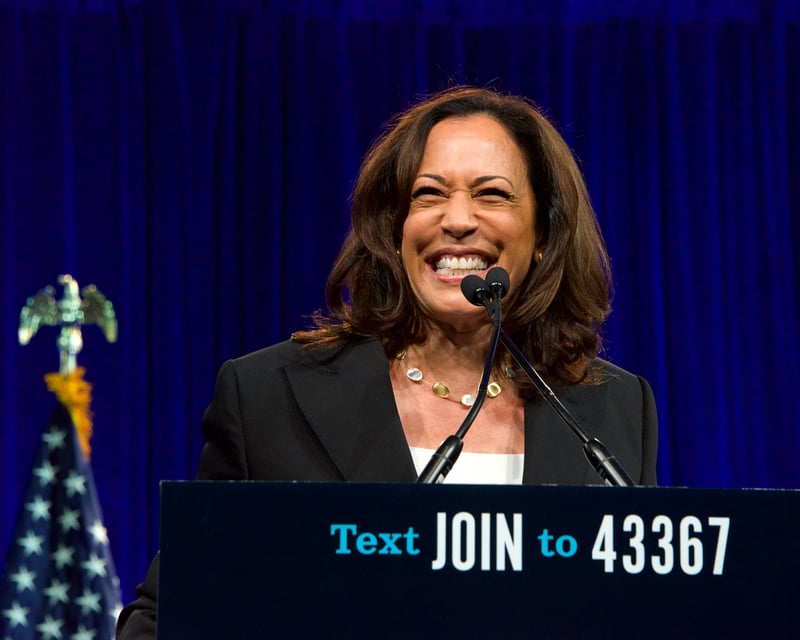
Kamala Harris is shaping up to be the real threat to democracy and freedom as the 2024 election looms based on her past comments.
While she is trying to distance herself from her beliefs and agenda to gain national support for her campaign, below the surface, Harris admits she is the same person today as she was when she made those statements.
Critics are citing her stances on several key issues that raise concerns about government overreach, freedom of speech, and individual liberties.
One of the most significant criticisms comes from her firm stance on gun control. Harris has expressed support for a national ban on semi-automatic weapons, including popular firearms like the AR-15, and has called for a mandatory buyback program. This policy has led many to argue that her approach infringes on Second Amendment rights.
Beyond just banning assault weapons, Harris has suggested stricter enforcement of gun safety regulations, which some fear could lead to intrusive government practices, including gun confiscation from private homes if citizens are not adhering to strict safety measures. To her detractors, this paints a picture of a government eager to limit individual freedoms.
Another area where Harris faces criticism is her approach to free speech, particularly online. During her tenure as vice president, the Biden-Harris administration worked closely with social media platforms to combat what they labeled as misinformation, especially during the COVID-19 pandemic.
This partnership between the government and tech companies like Facebook and Twitter to control narratives on platforms has led to accusations of censorship. Many argue that this coordination was a direct infringement on free speech, with Harris seen as advocating for the government to influence or suppress dissenting voices under the guise of preventing misinformation.
Harris has also been criticized for supporting the idea that the government could seize patents or intellectual property in cases where private companies do not comply with certain government regulations. This has led to fears that such policies could stifle innovation and violate property rights. Harris’s stance on patent control suggests a willingness to let the government override private enterprise decisions in the name of public good, a position that concerns those who advocate for free market principles.
When it comes to healthcare, Harris has been a strong advocate for nationalizing healthcare and moving the U.S. toward a single-payer system. Critics argue that this would eliminate the option of private insurance, forcing all Americans into a state-controlled healthcare system.
To those concerned about personal choice and market freedom, this represents another step toward government control over fundamental aspects of life, which they believe threatens individual autonomy and freedom.
Social issues are another domain where Harris’s positions have raised alarms among those concerned about free expression. Harris has been a vocal supporter of LGBTQ+ rights and has pushed for legislation that would classify protests or dissent against such rights as hate crimes. Her detractors argue that this could lead to the criminalization of political and social opposition to policies that conflict with traditional values. Many worry that this could result in the government labeling opposition as hate speech, leading to legal penalties and restrictions on the right to free assembly and expression.
Together, these policies are seen by critics as a package of government overreach that threatens the fundamental freedoms of speech, property, and personal autonomy. To those who oppose her, Harris’s positions represent a significant shift towards centralized power, where the government can dictate key aspects of citizens’ lives under the banner of progress.


 WATCH: Kamala Harris calls for the enactment of gun confiscation laws, universal gun registration, and a ban on commonly owned firearms.
WATCH: Kamala Harris calls for the enactment of gun confiscation laws, universal gun registration, and a ban on commonly owned firearms. 




 (@FFT1776)
(@FFT1776)